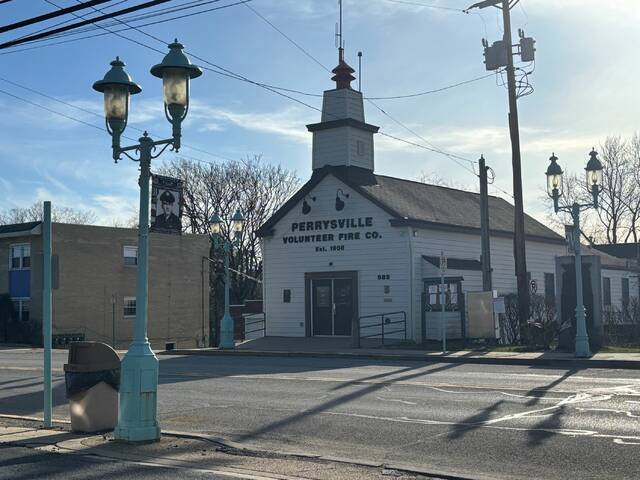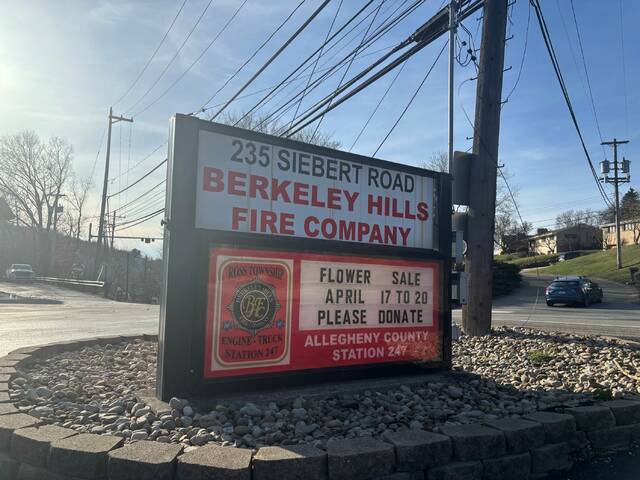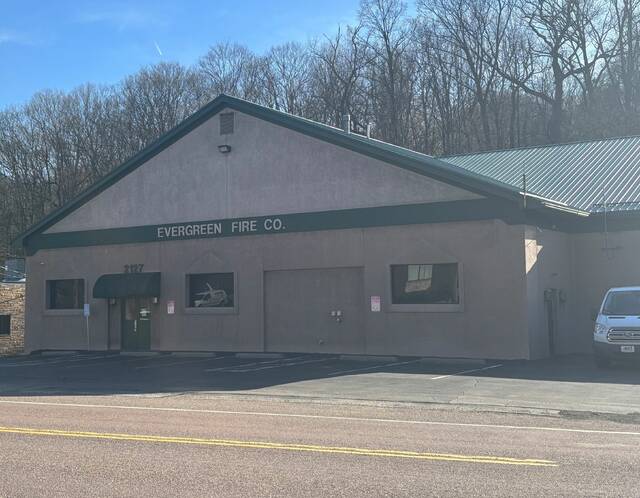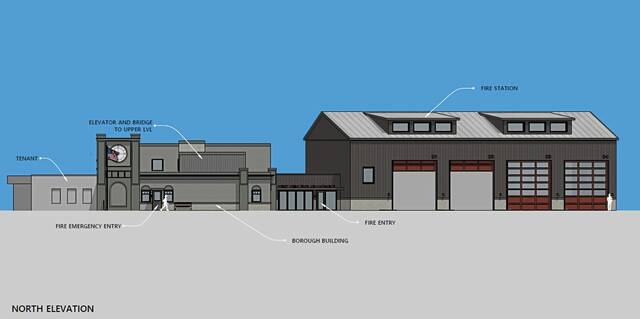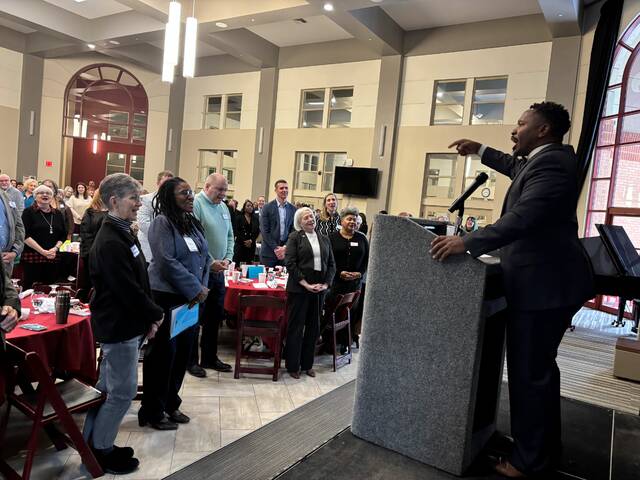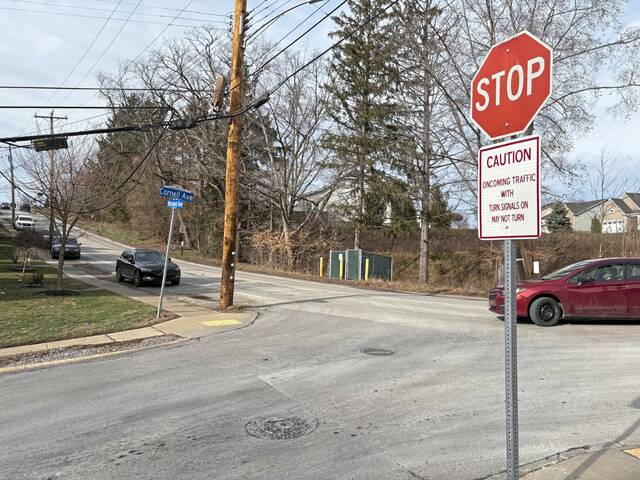After an extensive study recommended changes last year, Ross is taking the first steps in what likely will result in a yearslong revamp of the township’s fire services.
During a meeting earlier this year, the township commissioners tasked Robb Consulting, a Central Pennsylvania public safety consulting firm, with finding a director of fire services for Ross. The director is a new position the commissioners soon will codify with an ordinance.
Previously, the commissioners engaged the same consultant to perform an assessment of fire services in the town and make recommendations for improvements.
Those improvements are required because, according to Commission President Dan DeMarco, “times have changed.”
Amid a stark statewide decline in volunteer firefighters and chronic staffing shortages among several of Ross’ fire companies, DeMarco said the town must move forward in implementing the recommendations from the study.
Though Ross is only 14 square miles, the town hosts eight volunteer fire companies, the youngest of which was founded in 1946. Among those eight departments, there are 85 active members with an average age of 47.
Among several objectives Robb Consulting outlined in last year’s study, the most consequential in the short term may be the adoption of performance standards tied to funding.
Currently, fire companies operate almost like private clubs, though they receive money from the township to fund their services.
In the future, those funds likely will be tied to a company’s ability to meet certain yet-to-be-determined standards related to staffing, response times, training and equipment. Without funding from the township, it is likely companies would be forced to shutter or consolidate.
“We need to tie what they receive from the township to what they’re doing, what they’re accomplishing,” DeMarco said.
Several of the smaller companies, DeMarco said, likely will have a “tough time” meeting the standards, which he said “certainly could” force them to close or merge.
DeMarco said he already is aware of informal talks among companies about potential mergers.
By the end of the process, Commissioner Chris Eyster said he does not expect all eight companies to remain operational, but he said it will yield “greater viability” among the survivors.
Eyster said he would like to see a “faster process” and the current part-time position of fire marshal be made full time. But, in general, he said he and other commissioners agree with the recommendations of the study and are looking to move forward.
Conversations among fire chiefs and community members, DeMarco said, have been “bumpy.” Many companies, now faced with an uncertain future, date back more than a century.
The current “crisis” in staffing is “nobody’s fault,” but DeMarco said Ross has an obligation to provide the best fire services it can.
Other recommendations in the study include the establishment of a community engagement committee, the reorganization and formalization of municipal oversight of the fire services and the development a departmentwide staffing plan.
Rob Brady, founder of Robb Consulting, said that although there was some “skepticism” among the companies while he gathered information for his study, most everyone he met wanted what was best for Ross.
“We were appreciative of the fact of how brutally honest they were. They admitted they have some good stuff, and they admitted they have some challenges,” he said.
An Adams County native and longtime firefighter, Brady said his distance from Ross was a check on potential bias.
But he is not especially new to the region. Brady worked with three former fire departments in Baldwin, which recently merged into one, in addition to the Hampton Township Volunteer Fire Department, the result of a two-station merger last year.
The president of Hampton’s fire company, John Schwend, said it took his department seven years to complete its merger. Though the pandemic interrupted things, he said the departments deliberately took things slow so volunteers would not feel rushed and become “discouraged.”
Schwend said his department, like Ross, also began the use of standard operating guidelines, which were created collaboratively between the two departments and implemented before the merger.
Though Hampton faced similar staffing concerns and limited funding, Schwend said some volunteers were hesitant to make changes.
“The thought pattern we had to overcome was the mentality that the way we’ve always done it is the way it has to be,” he said.
His department is still building a new culture after the merger, but the process went better than he could have expected, Schwend said.
Ross’ fire chiefs said in a statement that each department has switched to the same fire reporting software for incidents and training and have signed a contract to update their preplans, both recommendations from the study.
“We will continue to work together as departments and with the township to ensure forward progress for the next several years,” the statement said.
DeMarco said he hopes to have interviews for a director of fire services, a full-time paid employee of the town, done by May or June. Filling that position will be integral to moving forward since it would be the director’s responsibility to oversee the changes and implement standardization.
Hoping for a “fresh set of eyes,” DeMarco said he welcomes applicants from further afield than Ross.
In total, DeMarco said the entire implementation process for the study’s recommendation likely will take three to four years.
Still, Eyster said he has “grave concerns” about the long-term decline of volunteers in the town. Eventually, he and DeMarco said, Ross may have to pay firefighters to keep services viable.
A paid model, Schwend said, also is increasingly likely in Hampton.
“If everyone can see the big picture that, at the end of the day, things need to be done so that the public is served, well, I think (Ross) is going to come out on top,” Brady said.


